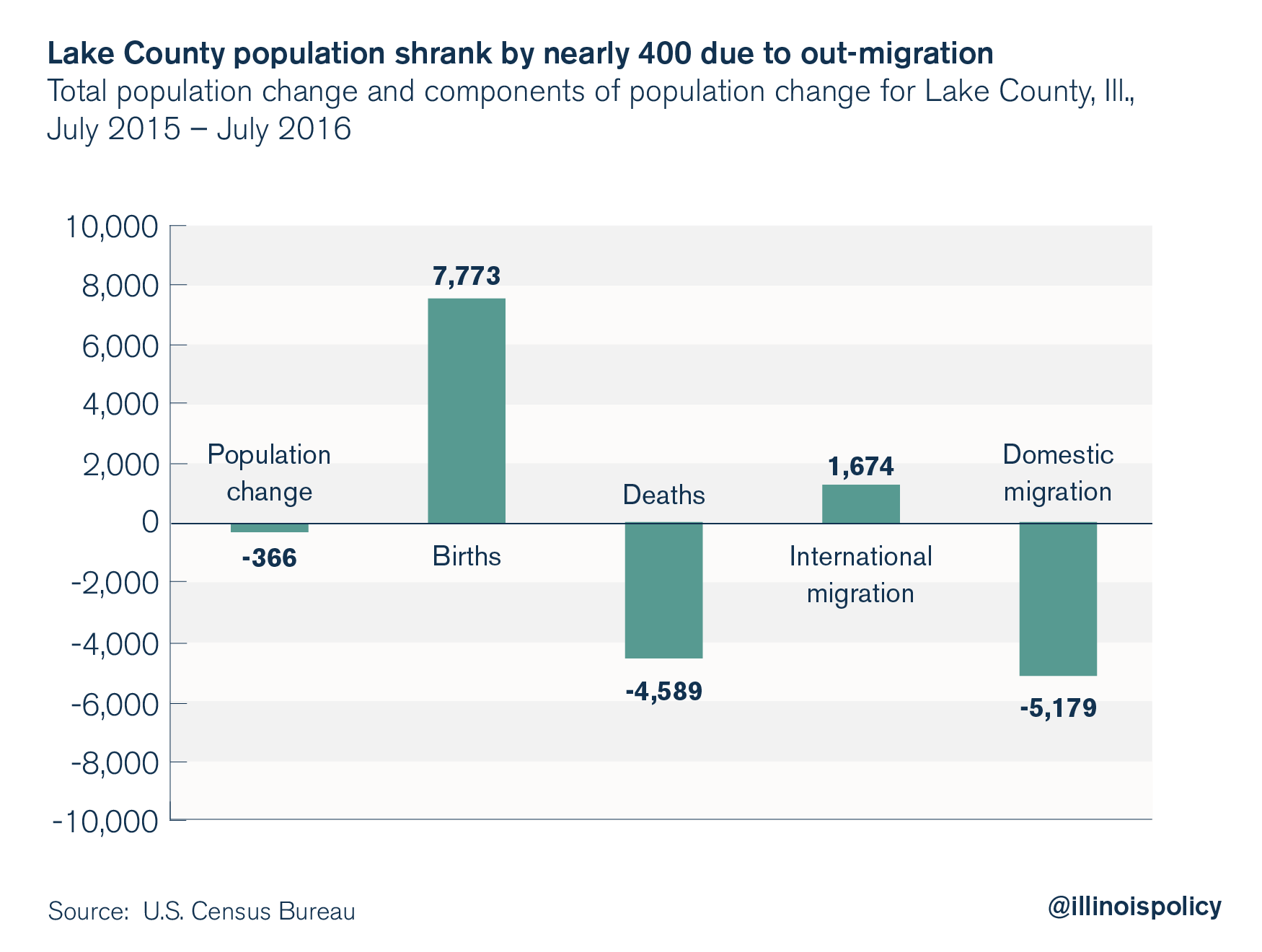Out-migration caused Lake County population to shrink by nearly 400 from 2015-2016
Newly released census data show more than 5,100 Lake County residents moved to other U.S. locales last year, causing the county’s population to shrink.
Lake County’s total population shrank by 366 people from July 2015 to July 2016, according to newly released census data.
Lake County is losing residents to other parts of the U.S. The county’s total population dropped because its domestic migration loss surpassed the county’s gains from having more births than deaths and from international migration.

Unfortunately, Lake County’s population loss mirrors that of the rest of Illinois. Ninety-three of Illinois’ 102 counties experienced net out-migration from 2015 to 2016, and 89 of Illinois’ 102 counties have shrinking populations.
Along with Lake, the other collar counties surrounding Cook County in Northeast Illinois – DuPage, Kane, McHenry and Will – also saw net domestic out-migration. Like Lake, Cook, DuPage and McHenry counties had enough domestic migration losses to cause their populations to shrink.
In Cook County, domestic out-migration – which has doubled over the last five years – caused the population to shrink by more than 21,000 people from 2015 to 2016.
High taxes drive people out of Illinois, Lake County
Illinois’ dysfunctional government, weak job creation and ever-increasing tax burden help explain these counties’, and the state’s, declining population numbers. A Paul Simon Public Policy Institute poll released in October 2016 found that almost half of Illinoisans surveyed wanted to leave the state, and taxes were the No. 1 reason.
Property taxes are especially burdensome, and Illinoisans pay some of the highest property taxes in the nation.
Homeowners deserve relief, and the General Assembly should pass a property tax freeze. But a freeze alone won’t keep a lid on property taxes. In a state with nearly 7,000 units of local government, measures such as local government consolidation can reduce the costly bureaucracies that help drive up property taxes. Illinois lawmakers should give all Illinois counties the power to consolidate units of local government.
Illinois’ counties and municipalities also need further structural reforms to lower costs that drive taxes up and residents out. Lawmakers should end expensive state mandates such as prevailing wage and collective bargaining requirements that hamstring local governments in their efforts to rein in expenses. The state should also stop the flow of subsidies that encourage local governments to overspend on items such as employee compensation. And the state needs to fix its workers’ compensation system, which is the most expensive in the region and costs state and local taxpayers almost $1 billion each year.
Until lawmakers enact substantial reforms to lower the cost of government and hold down taxes, counties such as Lake can expect to see more of their residents leaving for other states.
